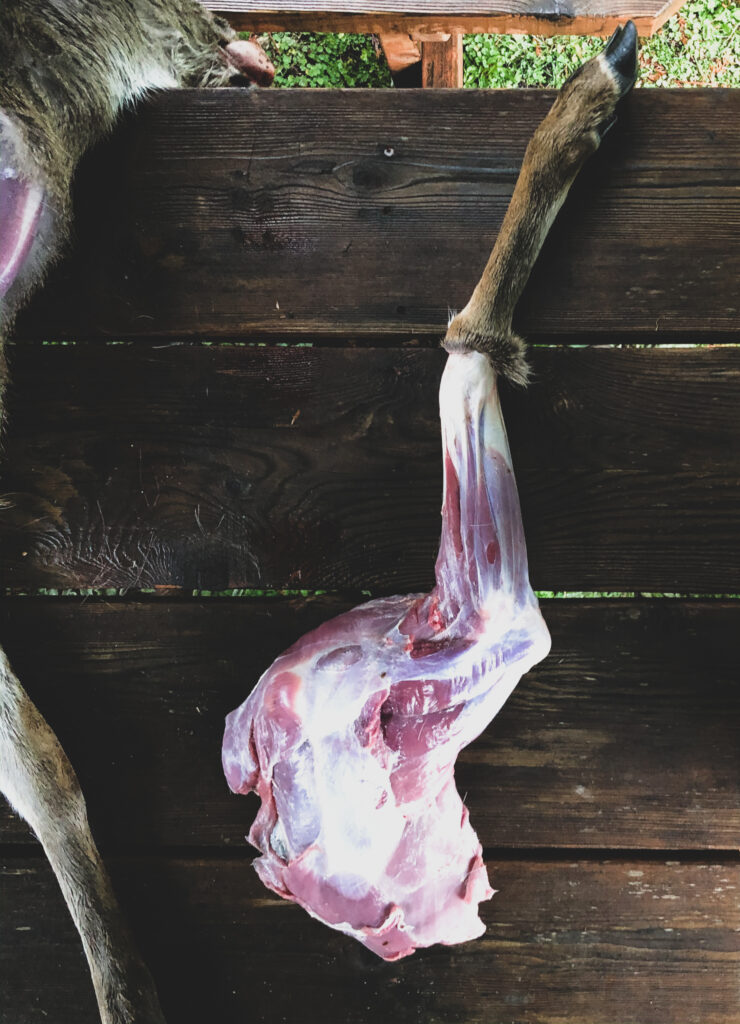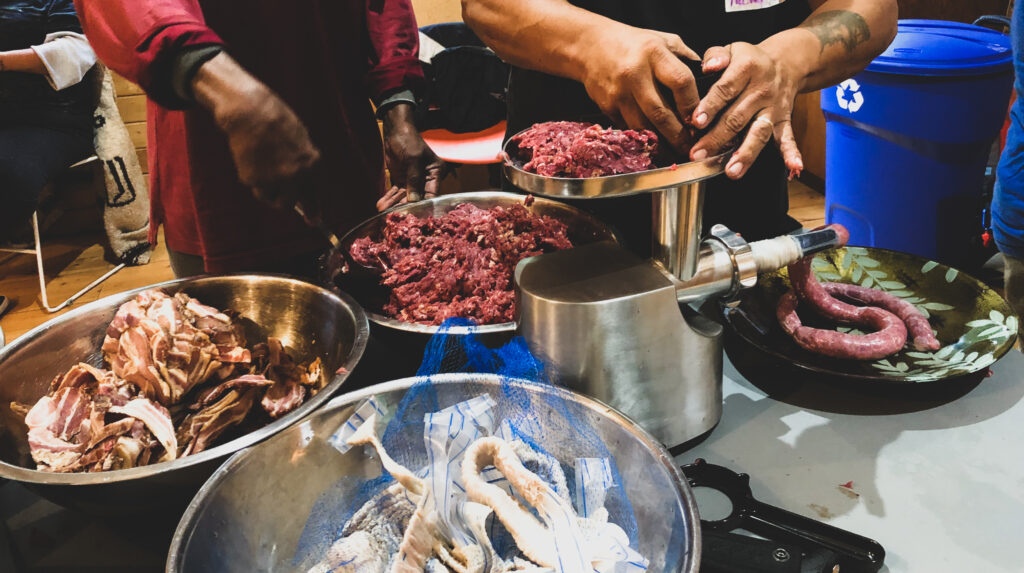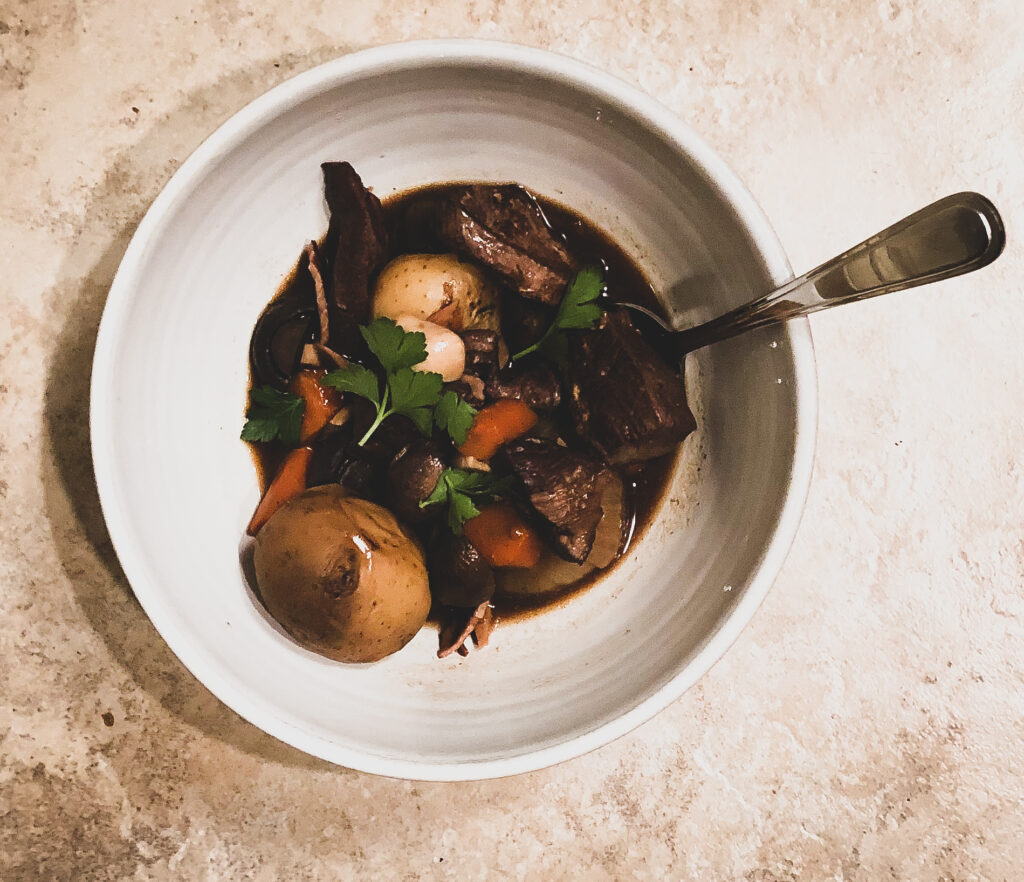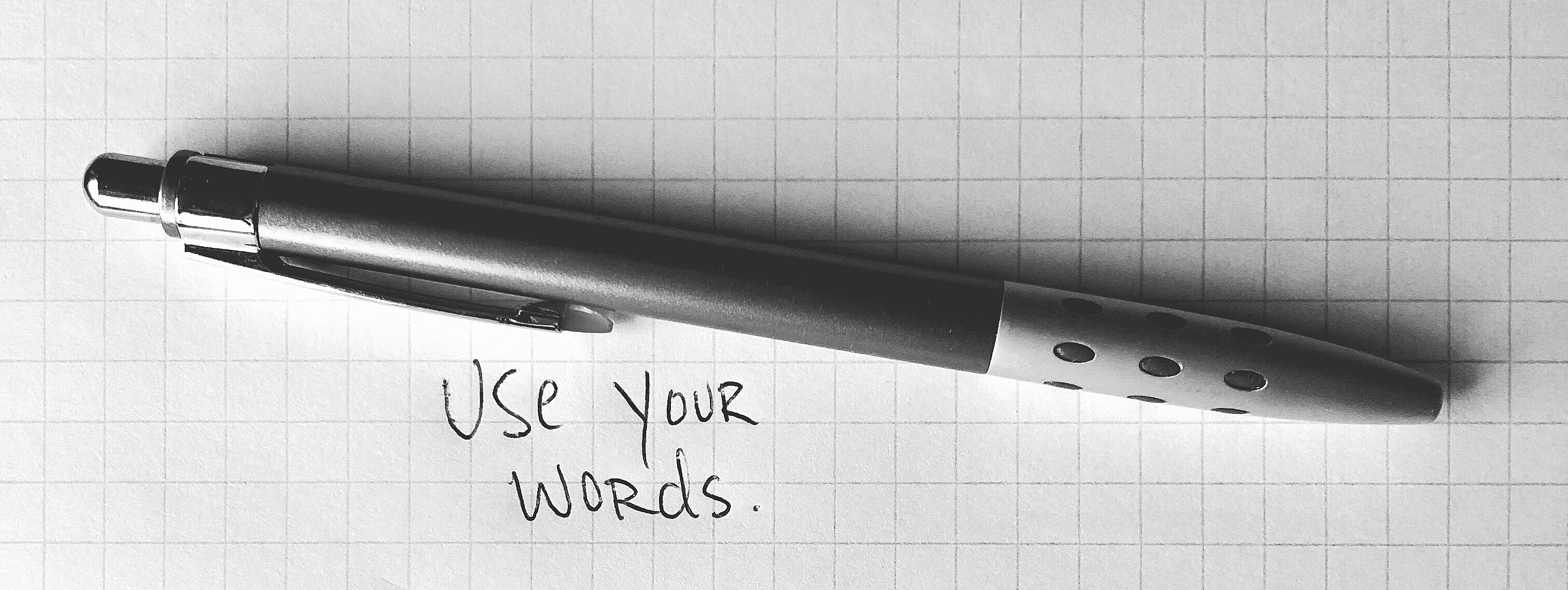Feed the People
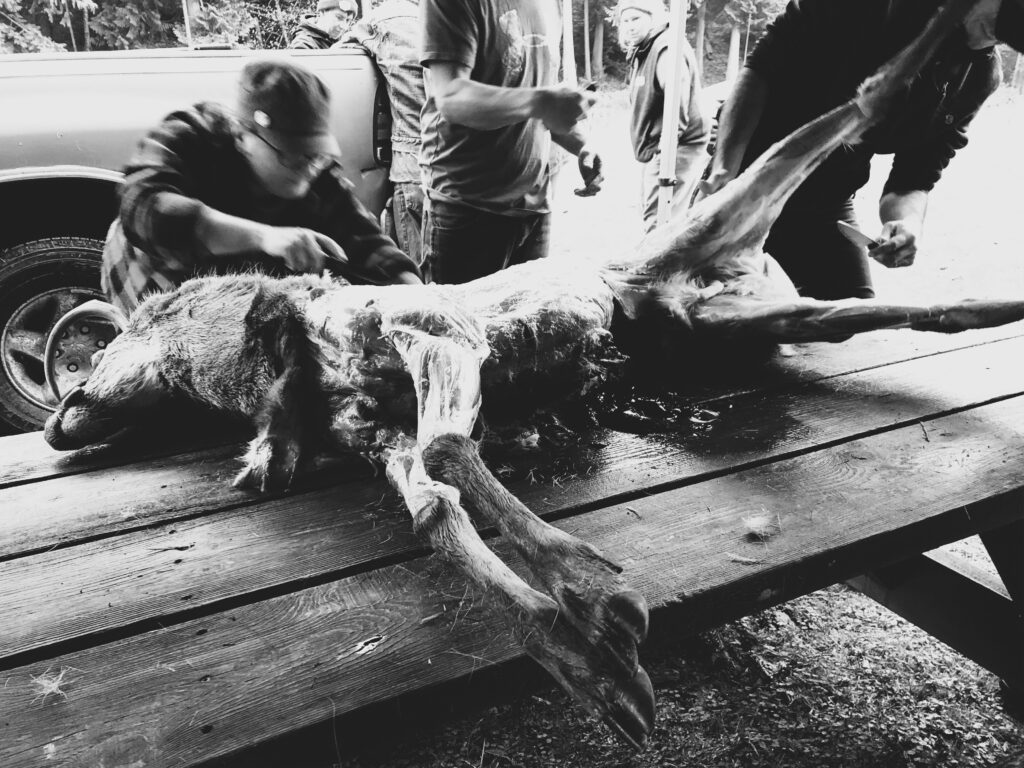
FEED THE PEOPLE
Feed the People was a collaborative butchery and sausage-making workshop hosted in tandem by the Penelakut First Nation and the Galiano Island Conservancy. The workshop was held on Galiano Island in the winter of 2019 in response an acceleration in the local fallow deer population, which due to an absence of native predators and diminished interest in human hunters, had risen to unprecedented numbers on Galiano and its neighbouring southern gulf islands. The deer population had become overwhelming for local ecosystems and islanders alike, for, as one participant put tritely, “If it grows, the deer will eat it.”
The omnipresence of deer created a negative cascading impact on local ecosystems by the nature of their voracious overgrazing. This of course precipitated a decline in habitat quality and biodiversity by stunting wildflower reproduction, bird populations, and tree regeneration. Such activity not only posed a constant irritation for local gardeners, but cyclically, the declining health of the environment was also jeopardizing the health of the deer population itself, not to mention other negative social impacts on human populations, such as an escalation of automotive collisions due to more deer on the roads.
However, the island’s deer population had historically provided important ecosystem services as well as social, cultural, and spiritual benefits to the local community of islanders. The Penelakut Nation, for instance, has relied on the presence of deer as a dietary cornerstone, and as an important social and cultural food for the use in ceremonies and communal exchanges for thousands of years.
The workshop’s objective was to demonstrate how nose-to-tail eating and communal collaboration could offset the negative effects of deer overpopulation by joining diverse people with unique meat consumption objectives. Open to anyone interested, the event found an exchange of Penelakut elders sharing the traditional foodways of their Nation with local islanders looking for methods to protect their vegetable gardens, scholars like myself interested in the politics at stake, environmentalists concerned for the local flora and fauna, and others hungry to cast industrially-processed meat from their diets, and to take meat acquisition into their own hands.
Ultimately, through the guidance of the Penelakut elders, what began as six fallow deer in the back of a pick-up truck ended up as an array of zip-top bags filled to burst with fresh venison mince, fat sausages studded with garlic, salt, and pepper, and deep purple lobes of offal for the twenty participants to take home. In this exchange of learning and teaching, every member became valuable in deconstructing the animals, and what started as twenty strangers, finished at a long table sharing venison stew and sausages. Here I offered my experience as a former butcher and current scholar on muscle anatomy and knife-work in exchange for recipes and gardening advice from other participants, skinning and deboning tutelage from the elders, and a deepened appreciation for the contested politics that still existed on the island between the Penelakut First Nation and the Canadian government.
Taking my bags of mince and offal home, I recreated the recipe for stew taught to me by the group some days later for my family, where I shared my stories and experience with them over another convivial meal, and another exchange of stories and experience transpired, igniting another, and another yet to come…
